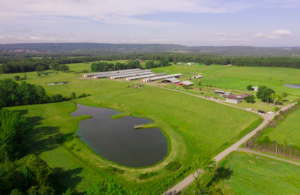MCE’s federal partners at the National Sustainable Agriculture Coalition (NSAC) posted a blog on the Environmental Quality Incentives Program (EQIP) that shows that more than 11% of program funds – $134 million – went to concentrated animal feeding operations (CAFOs) in 2020. Federal conservation dollars going to CAFOs? MCE has a problem with this.
Farm Bill Conservation Programs
The Environmental Quality Incentives Program (EQIP) is one of two major programs under the Conservation Title of the federal Farm Bill. The Farm Bill encompasses a wide variety of food and farm programs, from crop subsidies to forestry to nutrition. The Fam Bill Conservation Title provides funding and technical assistance to help farmers, ranchers, and landowners utilize conservation practices. This title aims to protect and improve environmental conditions by incentivizing voluntary participation – and the level of demand for these programs speaks to their economic and environmental benefits. Conservation programs are known for being highly oversubscribed, meaning there are more applicants than funds available.
The Environmental Quality Incentives Program (EQIP) helps farmers and ranchers with natural resource concerns on their land to plan, install, and implement new conservation practices by sharing the cost. These practices include sustainable management strategies MCE supports like cover cropping and prescribed grazing. Unfortunately, EQIP funds available for practices like cover cropping have declined in the past few years, while a steady portion of funds go towards CAFOs.

CAFOs or “factory farms” are industrial livestock production facilities, notorious for their negative environmental and human health impacts. Factory farms produce massive volumes of animal waste. The storage, transfer, and land application of this waste is one of the primary sources of CAFO pollution concerns. Waste storage facilities and manure transfer are among the top supported practices for CAFOs under EQIP. There is a fundamental problem with conservation dollars going towards practices like wastewater lagoons that can have devastating environmental and human health impacts. With a significant portion of EQIP funding going to CAFOs, there is less funding available for small and mid-size farmers and ranchers to implement conservation practices that have substantial environmental benefits.
The other main program under the Conservation Title, the Conservation Stewardship Program (CSP), is a comprehensive program that goes beyond EQIP, allowing a farmer or rancher to enroll their entire operation in the program rather than simply providing funding for a specific practice. MCE loves that CSP rewards farmers who already engage in conservation activities and helps farmers take the next step to install or adopt additional conservation practices. Ideally, farms that implement conservation practices through EQIP would eventually “level up” to CSP.
Looking Ahead
The bottom line: environmentally-responsible agricultural practices can help Missourians combat climate change and sustain independent farming and ranching. Farm Bill conservation programs fund these practices, but we need to see a commitment to serve small-scale farmers over corporate agriculture – in particular farmers and ranchers of color and other historically-underserved producers.
You can count on MCE to advocate for policies that help to diversify Missouri’s farm economy and support small, independent, environmentally-responsible farms. Do you want to stay informed about the upcoming Farm Bill and get updates on federal funding opportunities? Sign up for MCE’s Federal Food Policy Alerts here.
